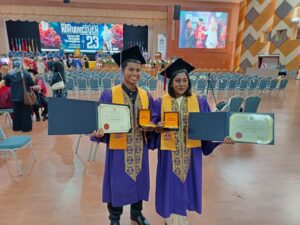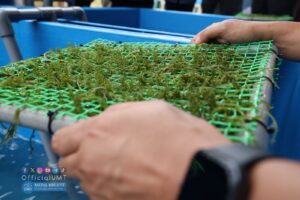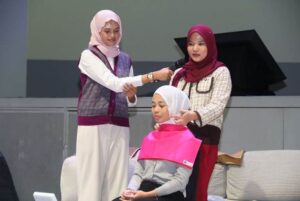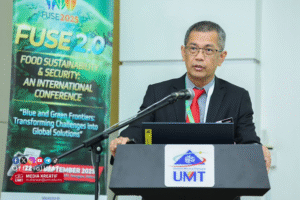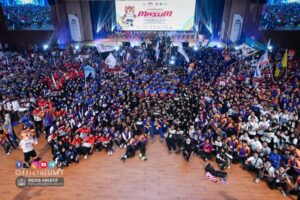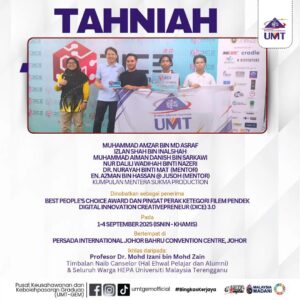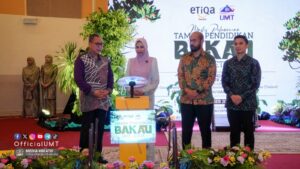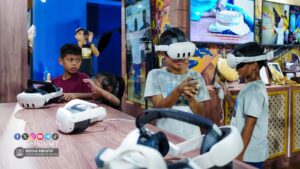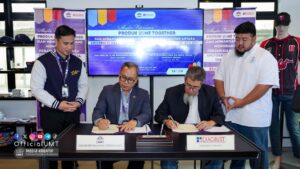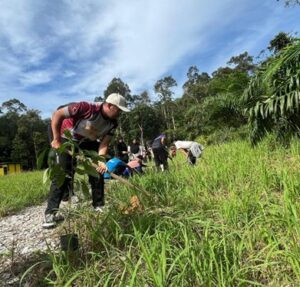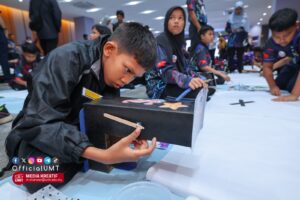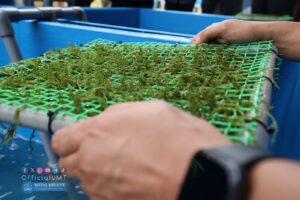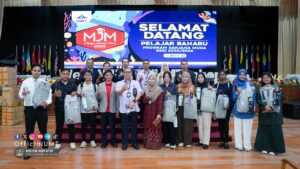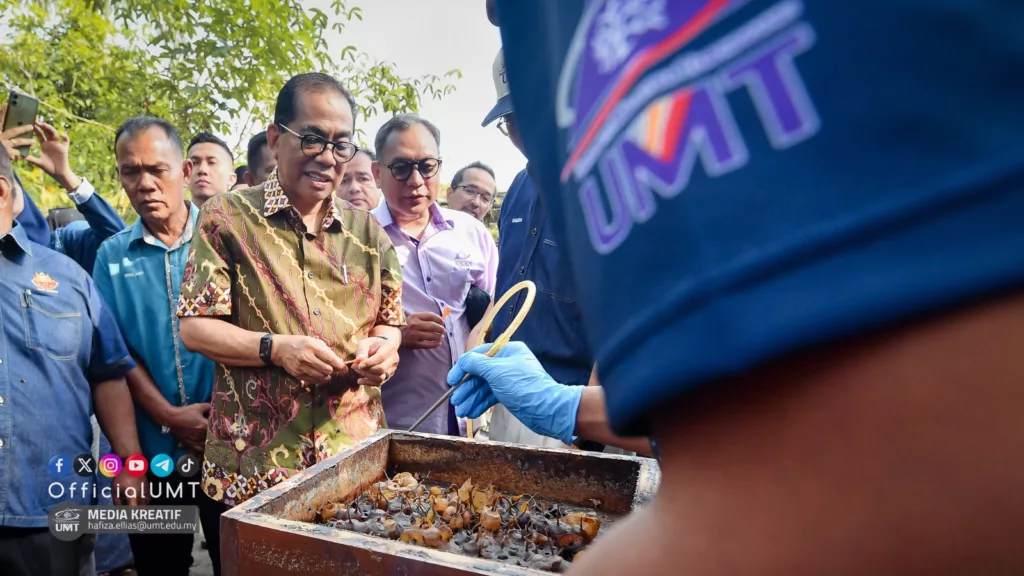


Creating economic sustainability through knowledge transfer
Wednesday, 28/8/2024
Share This Article :
Universiti Malaysia Terengganu (UMT) has taken the initiative to strengthen the relationship between an educational institution and a local community by implementing several impactful projects in Sedili, Kota Tinggi. For the past two years, UMT has been implementing knowledge transfer projects for the community here as part of the effort to fulfil their needs. UMT always makes the effort to recognize the current challenges faced by the community.
The university, known for its expertise in the field of marine science and aquatic resources, has been focusing on fisheries issues in Sedili. The community, who relies on the fisheries sector to earn income, has benefitted greatly from the programmes conducted. For example, the release of 10,000 seeds of mud crabs, blue crabs, and barramundi to promote the sustainability of the fisheries resources will help the local fishermen to increase their catch.
In addition, UMT has also created opportunities for the Sedili community to explore other areas that can potentially strengthen their socioeconomic standards. Through stingless bee, oyster mushroom, and DIY soap projects, UMT has helped the community, especially the youth, housewives, single mothers, army veterans, fishermen, and the poor to take the necessary steps to generate additional income. The approach is in line with the aspiration of Kota Tinggi parliament member Dato’ Seri Mohamed Khalid Nordin, who aims to strengthen the economy of the local community by improving the agrotourism sector and production of products based on stingless bees.
In addition, training on entrepreneurship and guidance on marketing, advertising, using digital platforms has led to a positive outcome. This effort has helped the community in Sedili to improve their economic standards and build their confidence to venture further on their own.
In a wider context, the efforts by UMT in Sedili are part of the bigger efforts taken to overcome poverty in Malaysia. According to the latest data, the rural poverty rate in Malaysia has shown a decrease, but there are still challenges that need to be overcome especially among the rural communities and the fishermen communities.
The increase in cost of living and reduction in stable employment opportunities are among the reasons why the rural communities are not able to come out of poverty. Mitigating measures that can be taken include conducting knowledge transfer programmes and competency programmes like those conducted by UMT to other areas that are in need. In addition, improving access to basic facilities such as education, health, and infrastructure in rural areas needs to be given priorities.
It is evident that joined efforts between educational institutions, the government, and local communities are the key to the socioeconomic stability that leads to improved quality of life and reduced poverty rate in Malaysia. Programmes such as those conducted by UMT in Sedili have not only directly impacted the community there but can become a model for others to follow in community empowerment efforts.
Original version in Malay prepared by:
Amirul Salam Hasan
Corporate Communications Office
Universiti Malaysia Terengganu
English translation by:
Corporate Communications Office
Universiti Malaysia Terengganu

